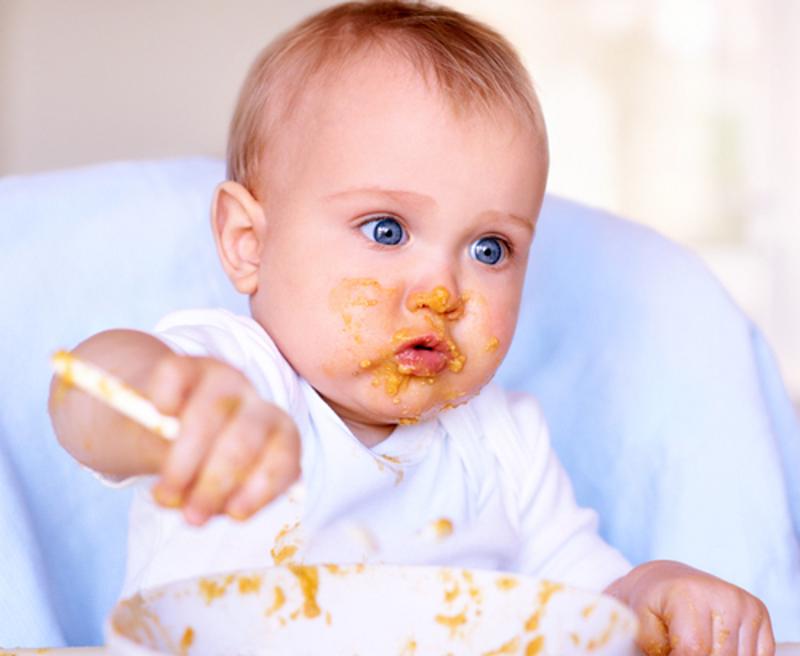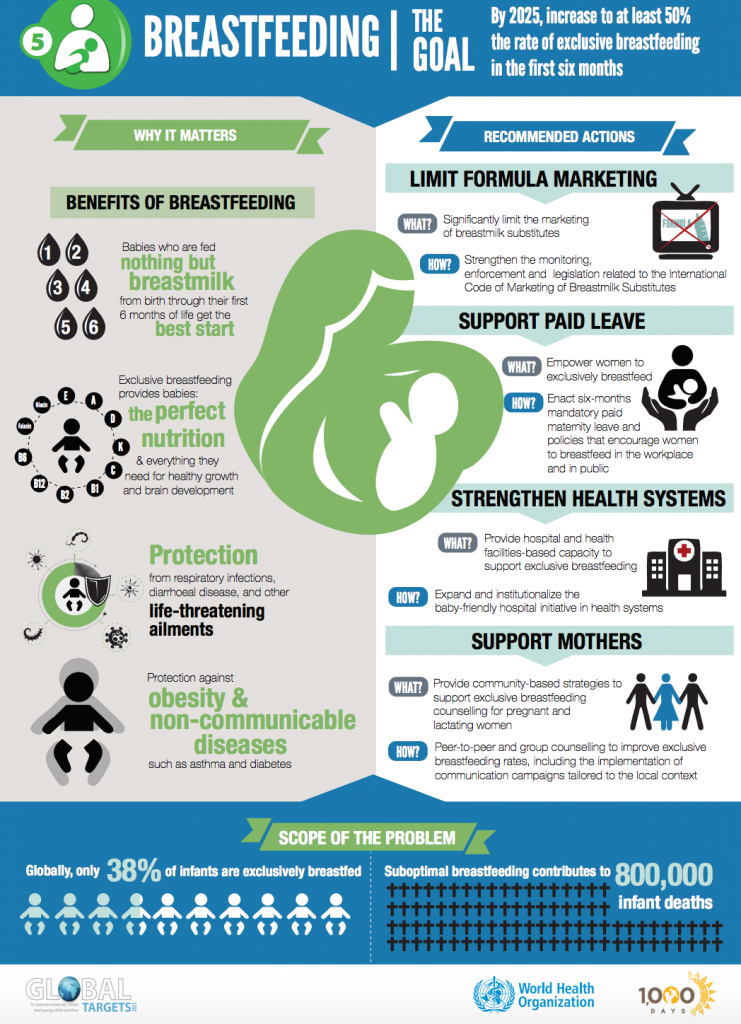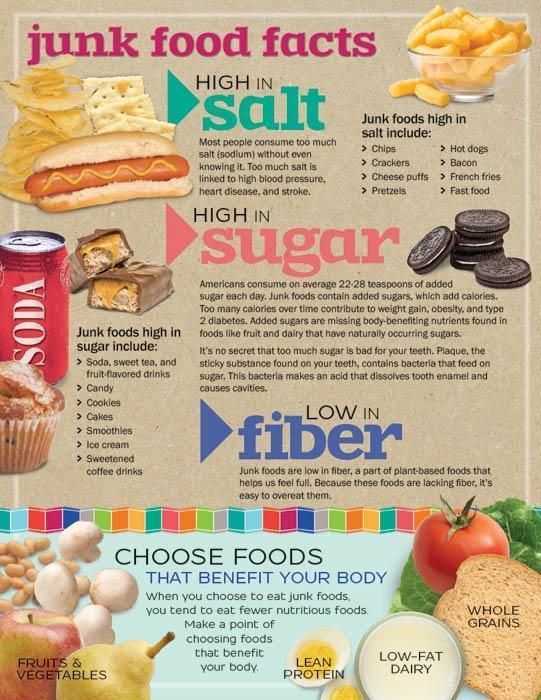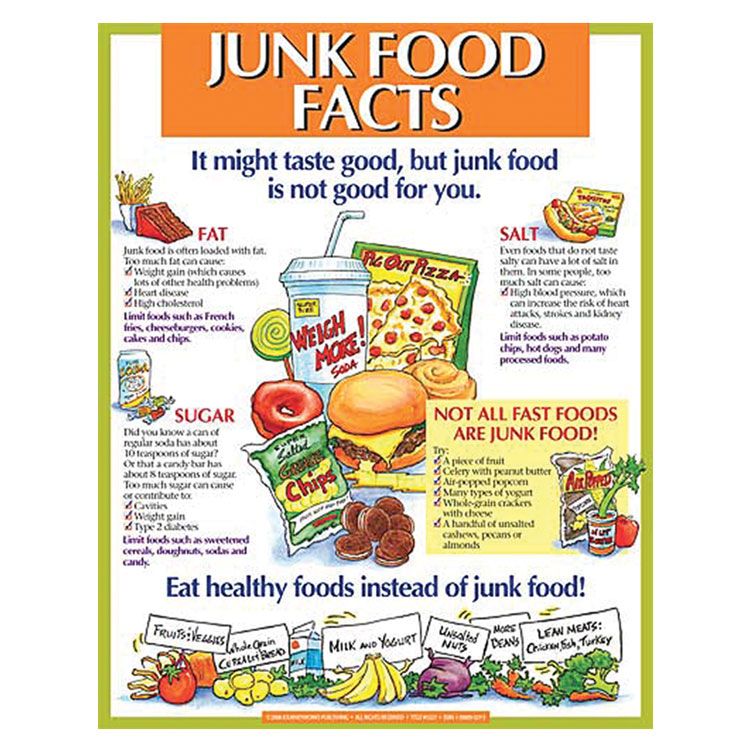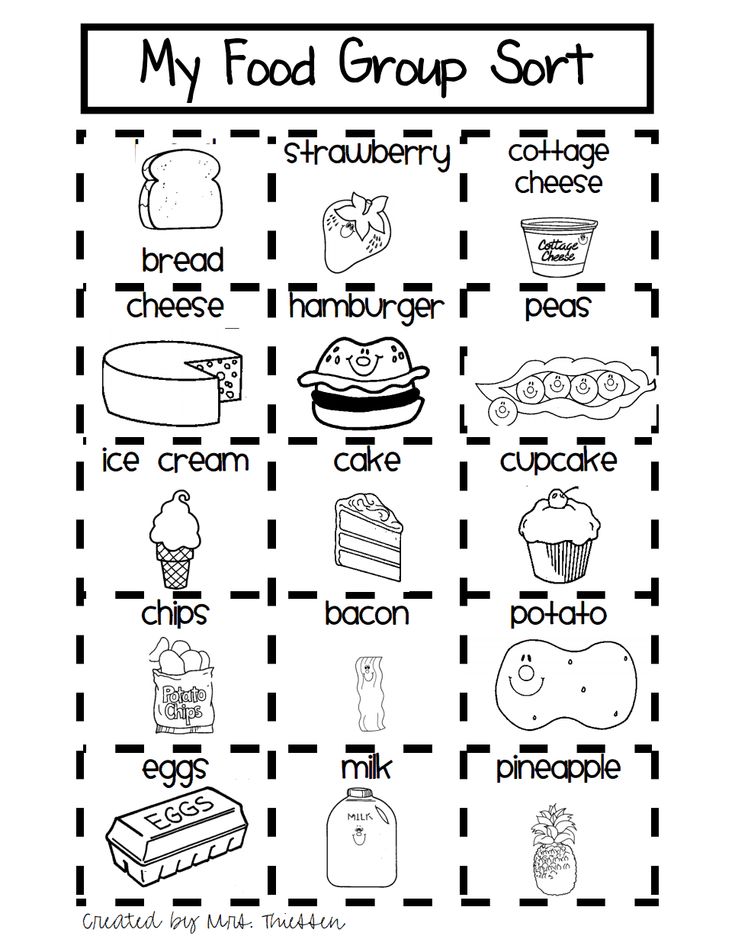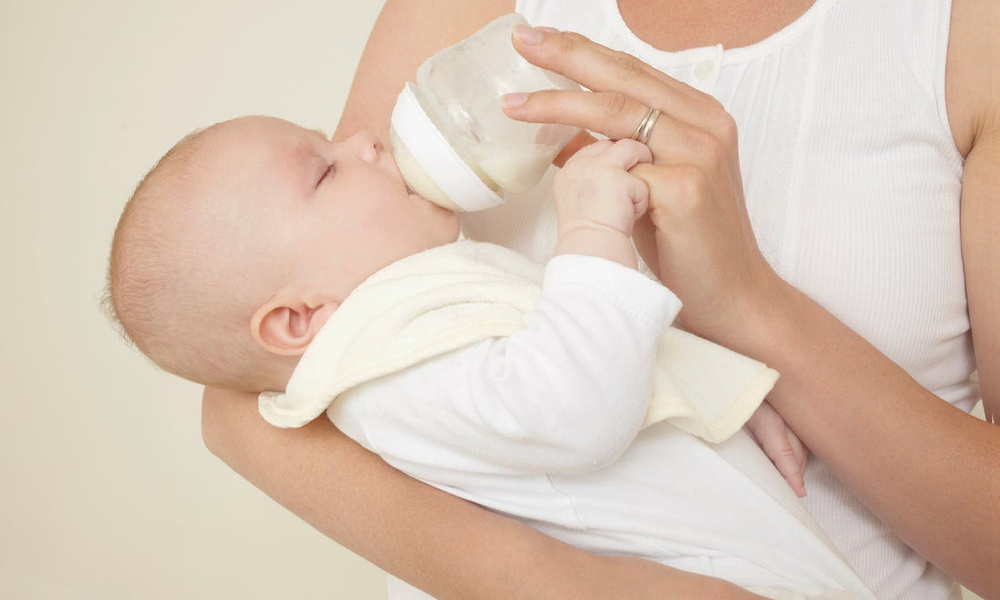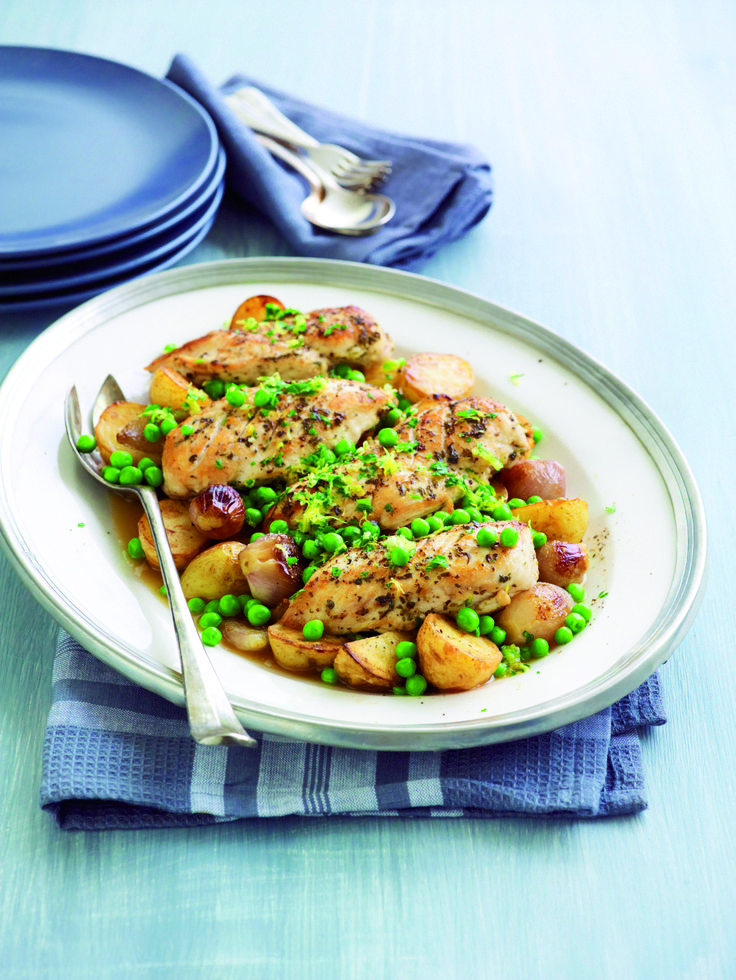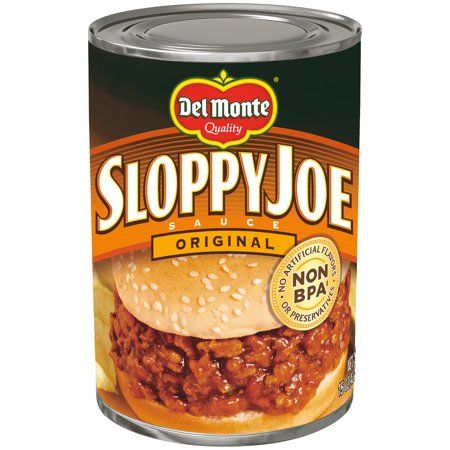Worst food for babies
The worst foods for babies
Babies need lots of nutrients, but have tiny stomachs – and you don't want your baby to fill up on empty calories instead of the vitamins and minerals needed to grow. At the top of the list of foods to avoid are choking hazards such as whole grapes, whole nuts, hot dogs, popcorn, and large chunks of nut butter. Other unsafe foods for babies include honey and unpasteurized foods. Soda, juice, and fruit drinks aren't healthy for babies – they're high in sugar and provide no nutrients. Same goes for fast foods and processed foods, since these are often high in saturated fat, sugar, and sodium.
Babies don't need many calories, but they do need lots of nutrients. Yet some foods commonly offered to babies are high in calories, sugar, or salt, and low in nutrients.
Because babies are so small, it's easy for them to fill up quickly on foods with empty calories, leaving no room for nutrient-rich healthy foods. This nutritional deficit can even hinder development, says doctor and registered dietitian Christine Gerbstadt.
That's why it's important to know which foods are best for babies and which ones to avoid, including unhealthy choices and potential choking hazards. Here's our list of the worst foods for babies.
Unsafe foods
Hard, sticky, slippery, chunky, and round foods are unsafe for young children because they can easily choke on them. Hot dogs, sausages, large pieces of meat or cheese, whole grapes, popcorn, chunky raw vegetables, and whole nuts and seeds are all choking hazards. Chunky nut butters and other sticky foods – such as jelly or gummy candies, dried fruit, and marshmallows – can also get stuck in your child's throat.
Once you start serving your baby finger foods, be sure to cut food into pieces no larger than half an inch.
Honey is off-limits for babies – don't give your little one any foods containing raw or cooked honey. It can contain the Clostridium botulinum organism, which can cause serious illness or death among infants.
Never give your baby unpasteurized foods or beverages, such as unpasteurized juices or "raw" milk, yogurt, or cheeses.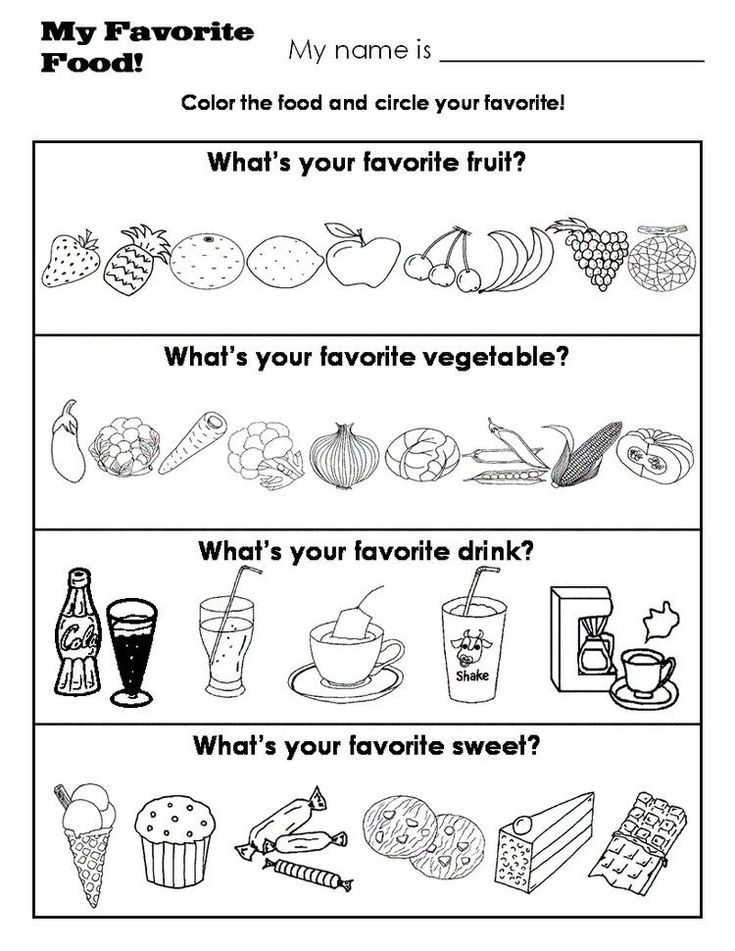 They could contain harmful bacteria and parasites.
They could contain harmful bacteria and parasites.
Learn more about foods that can be unsafe for your baby.
Fast food and processed foods
Fast food and highly processed foods are often loaded with saturated fat, sugar, salt, and calories and low in healthy nutrients. They shouldn't be on the menu for your baby.
Advertisement | page continues below
People define "processed" in different ways, but in general, the more the food is modified from what was originally caught, raised, or grown – and the longer the list of ingredients – the more processed it is.
"The more processed the food, the more nutritional value tends to go down, and the more the sugar, salt, and fat content goes up," says Kate Geagan, dietitian and author of Go Green, Get Lean.
Check nutrition labels when choosing packaged baby food. The best baby foods have few ingredients and no added salt, sugar, or modified food starch.
Ready-to-eat foods meant for older children and adults aren't the best choice for babies. "They often contain way too much sodium," says dietitian Eileen Behan, author of The Baby Food Bible.
"They often contain way too much sodium," says dietitian Eileen Behan, author of The Baby Food Bible.
For example, instead of serving canned pasta entrees, it's better to boil some noodles and sprinkle some cheese on top. And instead of serving deli meats, which are often high in sodium and carry a risk of food poisoning, cut up small bits of roast chicken or hamburger.
Juice, fruit drinks, and soda
It's not surprising to see soda on this list. Whether regular or diet, soda provides no nutrients, and filling up on either type means babies eat and drink less of the nutritious food their bodies really need. Regular soda also contains loads of sugar, which can cause tooth decay. Added sugars aren't recommended at all for children under 24 months.
But fruit drinks ... and even 100-percent juice? Sure, these beverages contain fruit, but that doesn't mean they're healthy. The fiber in fresh fruit is largely lost in the juicing process, and what's left is a whole lot of sugar.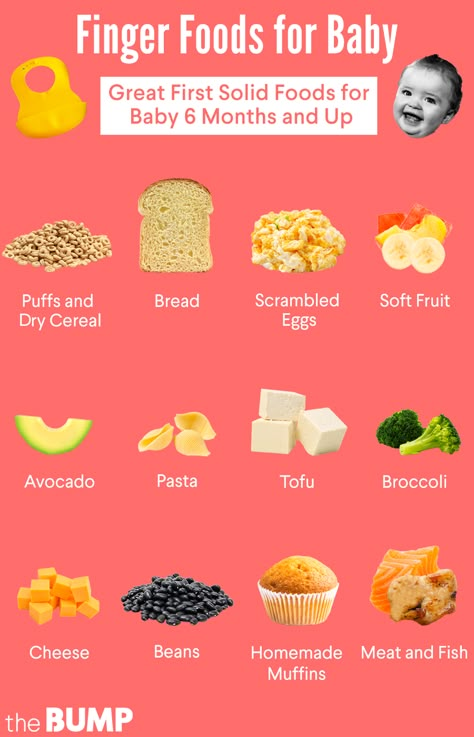 Juice can also cause diarrhea in some babies.
Juice can also cause diarrhea in some babies.
"Juice is basically a waste of calories," says pediatrician Ari Brown, coauthor of Baby 411: Clear Answers and Smart Advice for Your Baby's First Year. Using juice to sweeten your baby's food isn't a good idea either: The sugars in juice can make food pass through the digestive tract more quickly, interfering with the body's ability to absorb nutrients.
And don't be fooled by advertisers' claims that juice provides babies with necessary vitamin C. "Babies can easily get their vitamin C from one small serving of fruit," says Brown.
Juice isn't recommended for babies younger than 12 months. The American Academy of Pediatrics (AAP) recommends that babies younger than 6 months drink only breast milk or formula. From 6 to 12 months they can have small amounts of water, but breast milk or formula should still be their main beverage.
After your baby's first birthday, whole cow's milk is the recommended beverage (though your toddler can continue breastfeeding as long as you both enjoy it). Your toddler can have a small daily serving of 100-percent juice, but the AAP still recommends limiting juice for all kids.
Your toddler can have a small daily serving of 100-percent juice, but the AAP still recommends limiting juice for all kids.
Learn more about the best and worst drinks for kids.
Learn more:
Age-by-age guide to feeding your baby
Baby food revolution: New rules for feeding your baby
How to make your own baby food
Was this article helpful?
Yes
No
The five worst foods for babies
In this article
- 1. Crisps and salted crackers
- 2. Ready meals for older children or adults
- 3. Sweets and chocolate
- 4. Fizzy drinks
- 5. Fruit juices and smoothies
When your baby is about six months old, you can introduce them to a wide variety of foods. Giving your baby a healthy, balanced diet will help to ensure they get the vitamins and nutrients they need as they grow (NHS nd,a).
Try not to give your baby foods that are high in sugar or salt (NHS 2018a).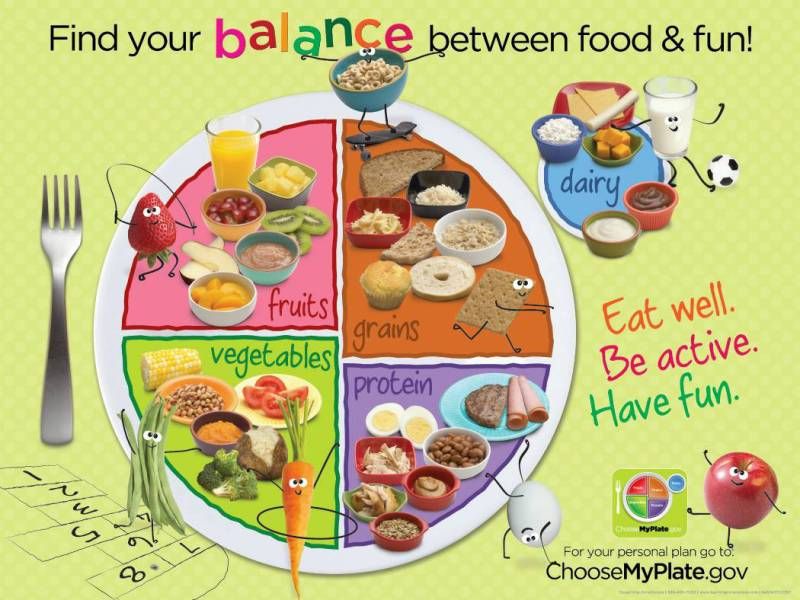 Too much sugar is bad for your baby's emerging teeth, while too much salt is bad for their kidneys (NHS 2018a). If your baby gets a taste for sugary or salty foods, it may be harder for you to persuade them to try healthy options (BNF 2009, ITF 2014a, NHS 2016a).
Too much sugar is bad for your baby's emerging teeth, while too much salt is bad for their kidneys (NHS 2018a). If your baby gets a taste for sugary or salty foods, it may be harder for you to persuade them to try healthy options (BNF 2009, ITF 2014a, NHS 2016a).
So which foods and drinks should you limit as your baby grows? Here's our list of the worst offenders.
(This article is about healthy eating. For a list of foods that are unsafe for your little one, see our food safety chart.)
1. Crisps and salted crackers
Like many processed foods, crisps and crackers are usually high in salt (NHS 2018a). Your baby only needs a very small amount of salt: less than 1g (0.4g sodium) a day until their first birthday, and less than 2g (0.8g sodium) between one and three years (NHS 2018b). Their little kidneys can't cope with more salt than this (NHS 2018a).
Before your baby is six months old, they will get all the salt they need from breastmilk or formula (NHS 2018b).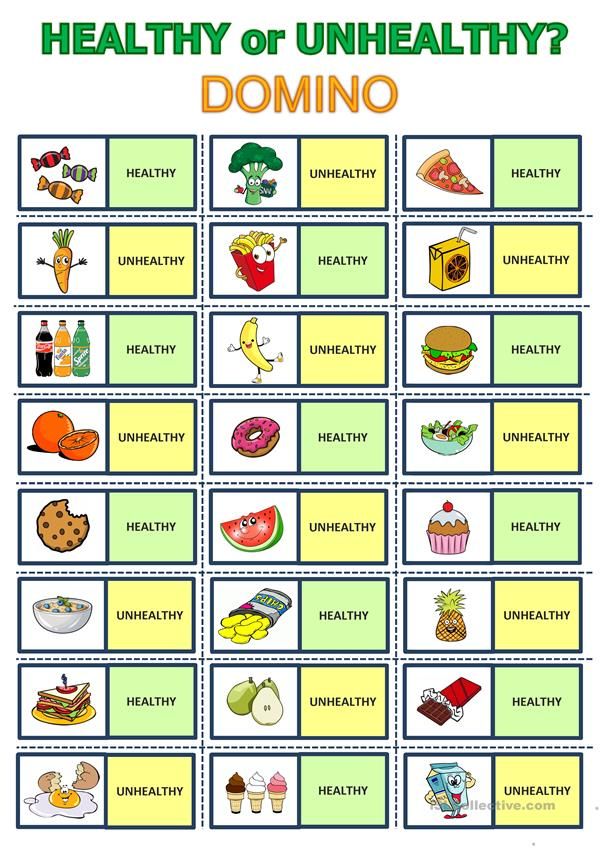
Once your baby begins eating solids, you shouldn't add salt to their food, even if you think it tastes bland (NHS 2018b). Steer clear of stock cubes and gravy, too, as they're usually high in salt (NHS 2018b). If you think your baby's food needs a bit of extra flavour, try using herbs instead (ITF 2014b).
Healthy food swaps:
Instead of crisps or salted crackers, you could offer your baby:
- unflavoured rice cakes or oatcakes (NHS 2018c)
- unsalted crackers (ITF 2014b)
- bread or toast (NHS 2018c)
- breadsticks (ITF 2014b)
2. Ready meals for older children or adults
Ready meals for adults and older children are often high in sugar and salt (NHS 2017a). This makes them unsuitable for babies (NHS 2018a). Making the same meal at home can be healthier and cheaper (NHS 2013).
Of course, as a busy parent you may not always have time to prepare every meal from scratch.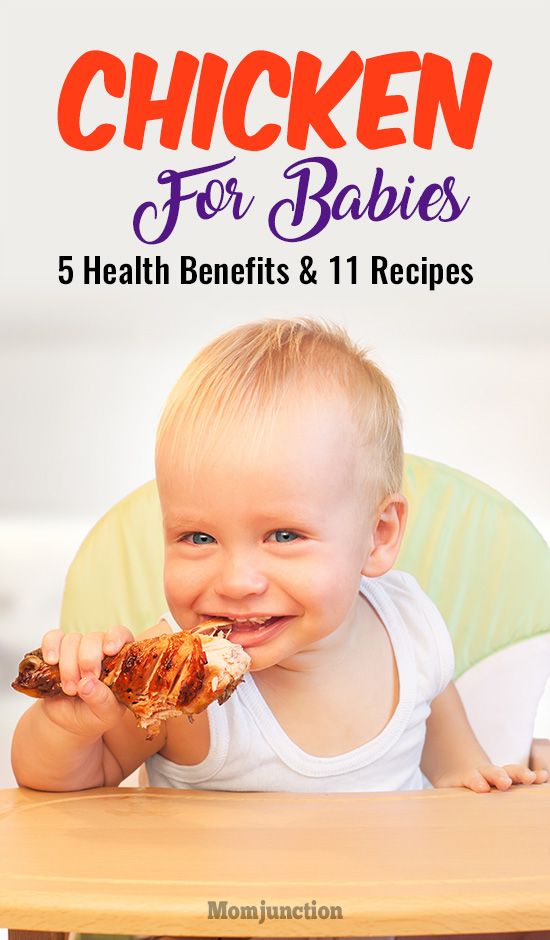 If you do buy any pre-prepared food for your baby, make sure it's suitable for their age, rather than toddlers or older children.
If you do buy any pre-prepared food for your baby, make sure it's suitable for their age, rather than toddlers or older children.
Healthy food swaps:
Instead of processed ready meals, why not try some of our baby food recipes?
- If you're just starting out, try our weekly weaning meal plans for you and your baby.
- See step-by-step recipes, plus extra tips and advice, with these weaning videos.
- Check out these quick and easy recipes for babies from six months to one year.
Pro tip: if you're short on time, try batch-cooking meals at the weekend. Freeze portions for your baby in separate small containers. Then you can simply defrost, reheat and go when it's time to feed your baby (NHS nd,b).
3. Sweets and chocolate
Chocolate and sweets may be tasty treats for grown-ups, but your baby really doesn't need them (NHS 2018a). They're full of empty calories that will fill them up without giving them the nutrients they need to grow (NHS 2017b).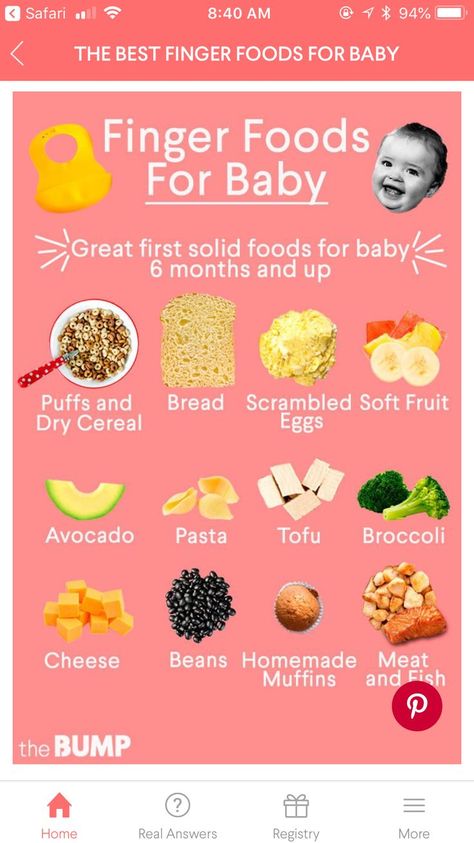 Plus, the sugar is bad for their emerging teeth (NHS 2018b).
Plus, the sugar is bad for their emerging teeth (NHS 2018b).
The foods you give your baby early on can influence the foods they'll enjoy as they grow up (ITF 2014a). Offering sweet foods now could encourage a sweet tooth, making it more difficult to encourage them to eat healthier foods later on (BNF 2009, ITF 2014a).
If you do want to give your baby sweets or chocolate, keep them to mealtimes only (Friedman 2017, NHS 2017b). If your baby has other food and drink at the same time, this can help to minimise the damage that the sugar will do to their teeth (Friedman 2017). The same goes for dried fruit, such as raisins, which are also high in sugar and can stick to your baby's teeth (NHS 2016a, 2017b).
Healthy food swaps:
Many types of fruit are deliciously sweet, as well as being packed with nutrients which make them a better option for your baby (NHS 2016a). Instead of chocolate or sweets, offer your baby chunks of fruit such as:
- banana
- peach
- melon
- mango
- kiwi
(ITF 2014b)
4.
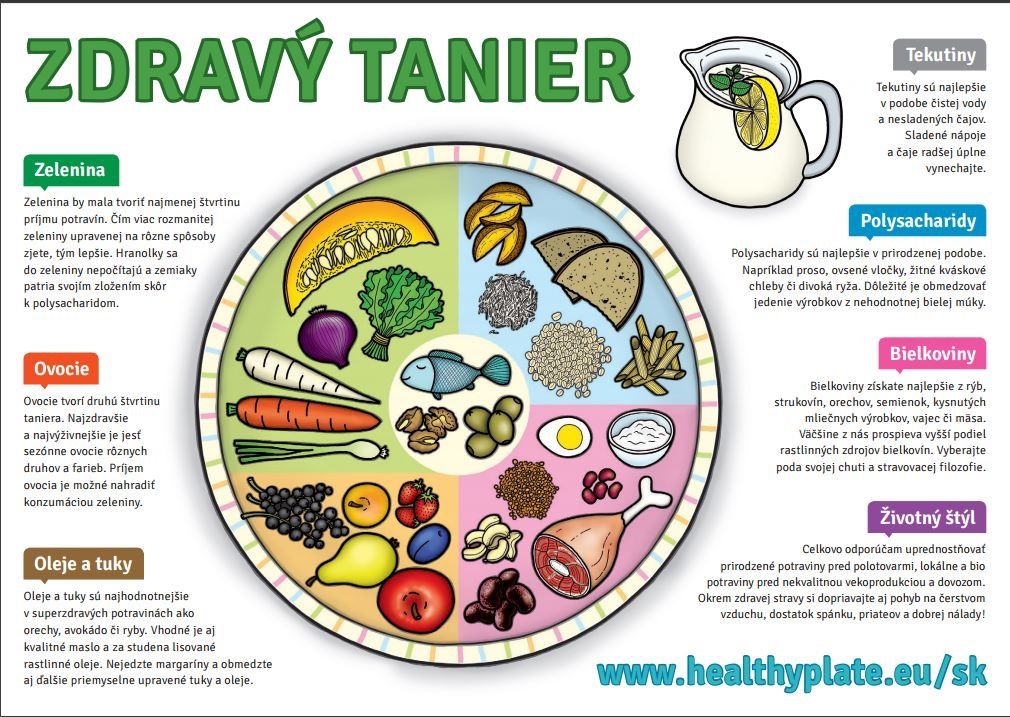 Fizzy drinks
Fizzy drinksYour baby never needs to have fizzy drinks. There are several reasons to avoid them:
- Most are packed with sugar, which isn't good for your baby (NHS 2017c).
- Some contain caffeine, which can be addictive, is bad for your baby's health, and may disturb their sleep (Healthline 2015).
- Even sugar-free fizzy drinks are highly acidic, which can damage your baby's developing teeth (NHS 2017c).
- Drinks containing sweeteners can encourage your baby to develop a sweet tooth, which could make it harder to introduce healthier foods and drinks to them as they grow (NHS 2017c).
- Fizzy drinks can fill your baby up quickly, so they may not have room to eat the foods they need to grow well (NHS 2017c).
Healthy drink swaps:
Until your baby is one year old, the only drinks they need are:
- their usual breastmilk or formula
- extra water with meals
(NHS 2017c)
Pro tip: from six months, try to offer your baby's drinks in a cup or free-flowing beaker (one without a valve) (NHS 2017c).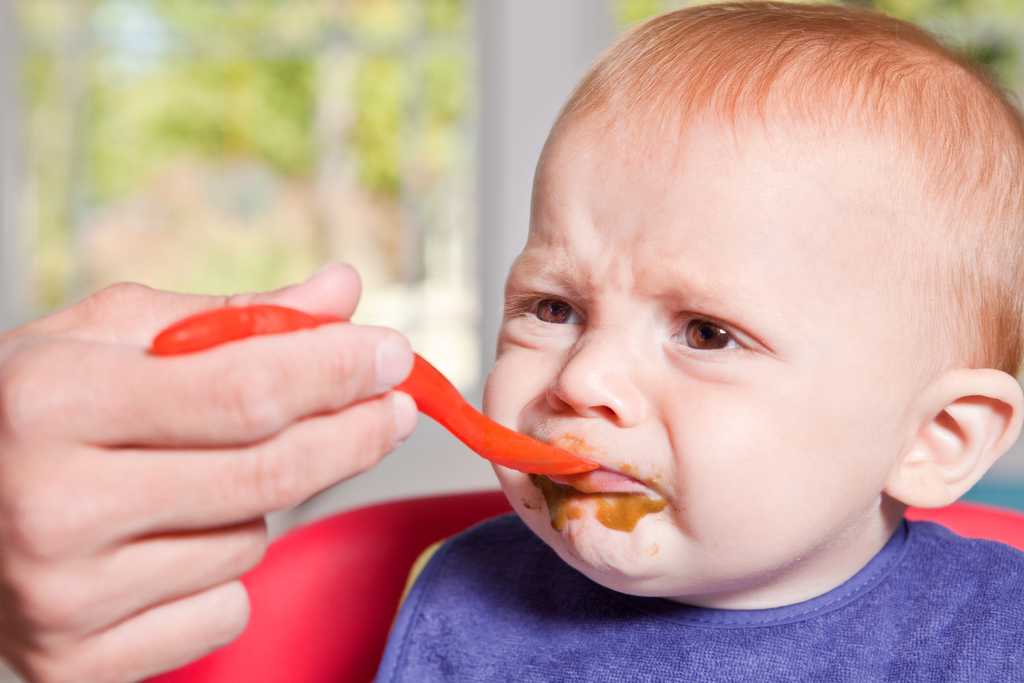 This will help them learn to sip instead of suck, which is better for their teeth (NHS 2017c). If your baby drinks their milk from a bottle, aim to switch to a cup by the time they're one year old (NHS 2017c).
This will help them learn to sip instead of suck, which is better for their teeth (NHS 2017c). If your baby drinks their milk from a bottle, aim to switch to a cup by the time they're one year old (NHS 2017c).
5. Fruit juices and smoothies
Fruit juice and fruit smoothies may sound like healthy options. But it's best not to give them to your baby, for much the same reasons you should avoid fizzy drinks. Fruit juices and smoothies are high in natural sugars and are acidic, meaning they can damage your baby's teeth (NHS 2017c).
Once you start to give your baby solid foods, they can have diluted fruit or vegetable juice at mealtimes, although they don't need it. If you do want to give your baby fruit juice with their meals, dilute it well, using at least 10 parts water to one part juice (NHS 2017c).
Watch out for drinks labelled as "fruit drinks" or "juice drinks". These often contain added sugar, and little in the way of vitamins or minerals, so it's best to avoid them completely (NHS 2017c).
Healthy drink swaps:
As above, the only drinks your baby needs until their first birthday are:
- their usual breastmilk or formula
- extra water with meals
(NHS 2017c)
If your baby's over one year old, check out our article on drinks for toddlers.
More feeding tips
- The five best foods to offer your baby instead
- 10 great finger foods for baby-led weaning
- Videos: weaning recipes and advice
- Step-by-step recipes suitable from six months
References
BNF. 2009. Infant nutrition. British Nutrition Foundation, nutrition through life. www.nutrition.org.uk [Accessed February 2019]
Friedman M. 2017. Nutrition and your child's teeth. WebMD, Oral Care. www.webmd.com [Accessed February 2019]
Healthline. 2015. Ask the experts: when can kids start drinking coffee? Healthline. www.healthline. com [Accessed February 2019]
com [Accessed February 2019]
ITF. 2014a. Developmental stages in infant and toddler feeding. Infant and Toddler Forum, Toddler Factsheet 3.5. www.infantandtoddlerforum.org [Accessed February 2019]
ITF. 2014b. Weaning – learning to like new tastes and textures. Infant and Toddler Forum, guidance & tips for parents. www.infantandtoddlerforum.org [Accessed February 2019]
NHS. nd,a. What to feed your baby. NHS, Start4Life, Weaning. www.nhs.uk [Accessed February 2019]
NHS. nd,b. Safe weaning. NHS, Start4Life, Weaning. www.nhs.uk [Accessed February 2019]
NHS. 2013. Do processed baby foods 'lack nutritional value'? NHS, Behind the Headlines. www.nhs.uk [Accessed February 2019]
NHS. 2016a. What to feed young children. NHS, Health A-Z. www.nhs.uk [Accessed February 2019]
NHS. 2017a. Eating processed foods. NHS, Live Well. www.nhs.uk [Accessed February 2019]
NHS. 2017b. How does sugar in our diet affect our health? NHS, Live Well.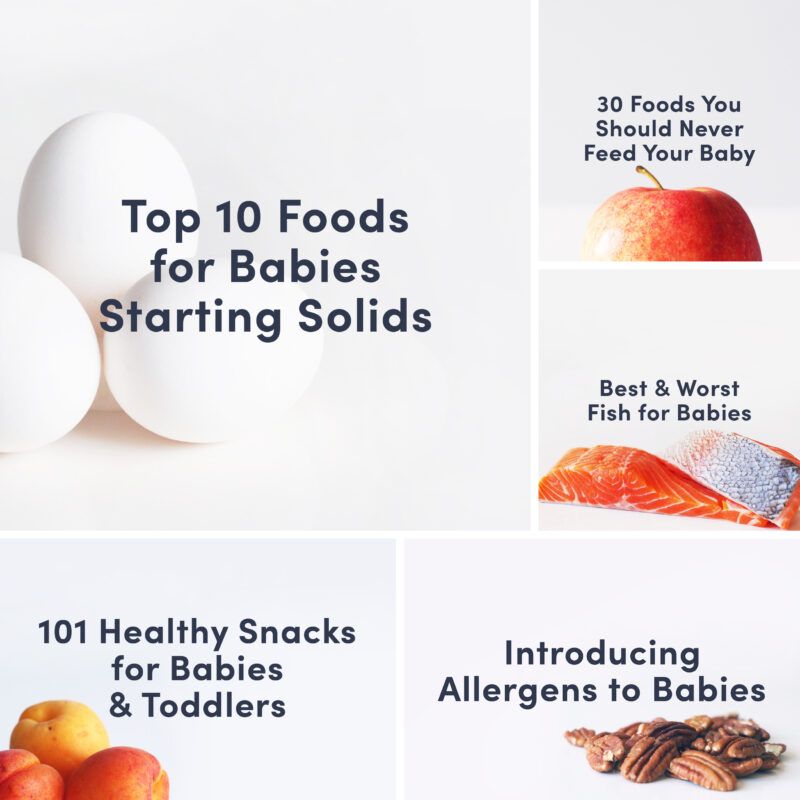 www.nhs.uk [Accessed February 2019]
www.nhs.uk [Accessed February 2019]
NHS. 2017c. Drinks and cups for babies and young children. NHS, Health A-Z. www.nhs.uk [Accessed February 2019]
NHS. 2018a. Foods to avoid giving babies and young children. NHS, Health A-Z. www.nhs.uk [Accessed February 2019]
NHS. 2018b. Salt: the facts. NHS, Live Well. www.nhs.uk [Accessed February 2019]
NHS. 2018c. Your baby's first solid foods. NHS, Health A-Z. www.nhs.uk [Accessed February 2019]
Show references Hide references
Harmful foods for children
The body of a small child is still very weak, any careless action can bring an imbalance into this extremely fragile system. The baby's digestive system is especially susceptible to all sorts of threats, because the child is just learning to eat adult food.
We all know what is healthy and necessary for a child to eat.
But we often forget that some foods can be harmful to health, especially for the health of the child. What are these products?
Of course, everyone's favorite sweets - sweets, cakes, cookies are in the first place. These products do not carry any benefit; neither vitamins nor minerals enter the body with them. In addition, sweets discourage appetite for healthier foods, which also does not add benefits. Therefore, the child should be given confectionery very rarely, in small quantities.
It is also important to remember that sweets damage teeth and can affect the normal development of a child's teeth.
Canned fruits and vegetables should also be avoided. Fresh fruits and vegetables are much healthier for your child. Canned meat and fish may contain various chemical additives that give them an appetizing appearance and flavor. But these additives are extremely hazardous to health. Do not give these products to children!
Sweet carbonated water - irreparable harm to a fragile child's body! Doctors never tire of repeating how dangerous this product is.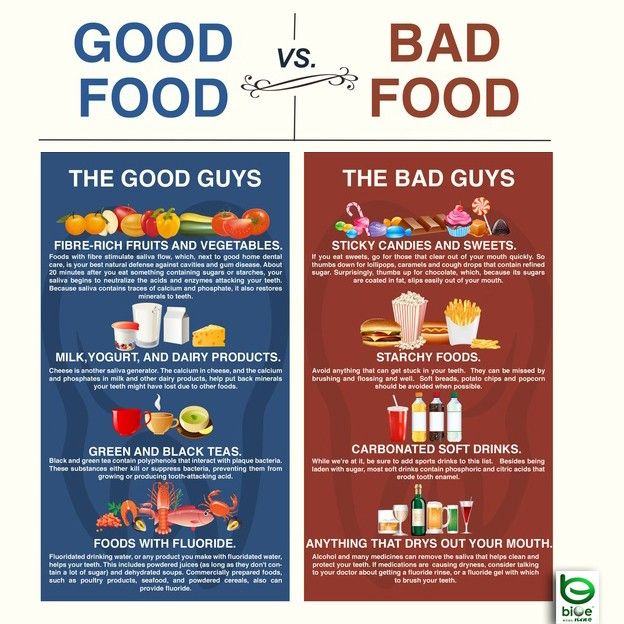 Indeed, in addition to sugar, soda contains many chemical dyes and flavors that simply “kill” the human digestive system. It is better not to give the baby the opportunity to fall in love with sweet soda.
Indeed, in addition to sugar, soda contains many chemical dyes and flavors that simply “kill” the human digestive system. It is better not to give the baby the opportunity to fall in love with sweet soda.
Fast food is practically the quintessence of all harmful things. In such, so to speak, food, a lot of saturated fats and carbohydrates, synthetic additives and substitutes. Pediatricians urge parents not to accustom children to fast food.
Chips, croutons and other snacks are also known for their "harmfulness". A lot of fat and chemicals are also used in the production of these products. Therefore, to preserve the health of the child, such food should not be given to him.
Even such familiar foods as boiled and smoked sausages, meat and fish delicacies are very harmful to the child's body due to their saturation with various spices and additives.
Separately, it is worth mentioning mushrooms - they should not be eaten by small children.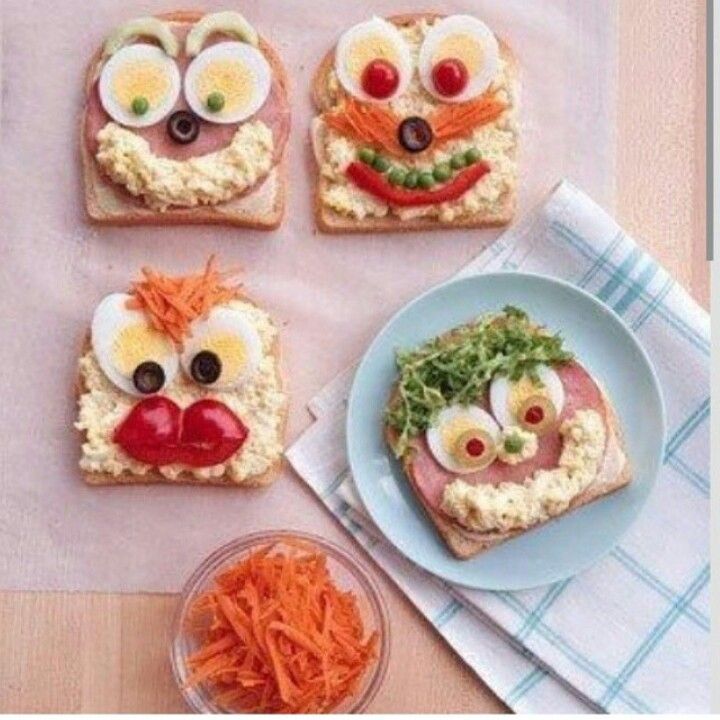 Not only are mushrooms generally difficult to digest by the human body, but also modern ecology makes this product even more dangerous. After all, mushrooms absorb from the environment all those harmful substances that are in it.
Not only are mushrooms generally difficult to digest by the human body, but also modern ecology makes this product even more dangerous. After all, mushrooms absorb from the environment all those harmful substances that are in it.
Unfortunately, we ourselves, the parents of , teach the child to harmful products. It is we who promise the child sweets as a reward. This is us taking the kid to fast food on holidays. And we ourselves eat all those harmful foods from which we so want to protect our children.
In order to provide the child with all the necessary nutrients and not harm the fragile health of children, you need to remember that boiled, baked or steamed food is more beneficial for the child. The less fried food in the baby's diet, the better. You should prepare dishes for the child from natural, high-quality products, without various preservatives, sweeteners and flavor enhancers.
What food is bad for the development of the child and what foods should be avoided
ORGANISM
4 November
If someone says that food does not affect the development of the organism of children - this is not true, how much it does!
Lack of nutrients does not allow the child's body to develop fully. In recent years, this has become more and more noticeable, despite the fact that there is, in principle, enough food in the world. But due to the lack of the opportunity to purchase it, children do not receive the necessary vitamins and minerals. Research in this direction in 2020 showed that more than 100 million preschool children around the world do not receive the substances their body needs, and because of this they lag behind in physical or mental development.
In recent years, this has become more and more noticeable, despite the fact that there is, in principle, enough food in the world. But due to the lack of the opportunity to purchase it, children do not receive the necessary vitamins and minerals. Research in this direction in 2020 showed that more than 100 million preschool children around the world do not receive the substances their body needs, and because of this they lag behind in physical or mental development.
If it is more or less clear to everyone about the lack of food, then what to do if there are foods, but they need to be introduced into the child's diet correctly?
A developing teenager should be given only wholesome food that will have a beneficial effect on brain activity. But how do you figure out what junk food is? Now we will deal with you.
What can junk food do?
Unhealthy food is not only because it has gone bad or expired, but also unhealthy food is called when it does not bring any benefit, or because of excess it is harmful.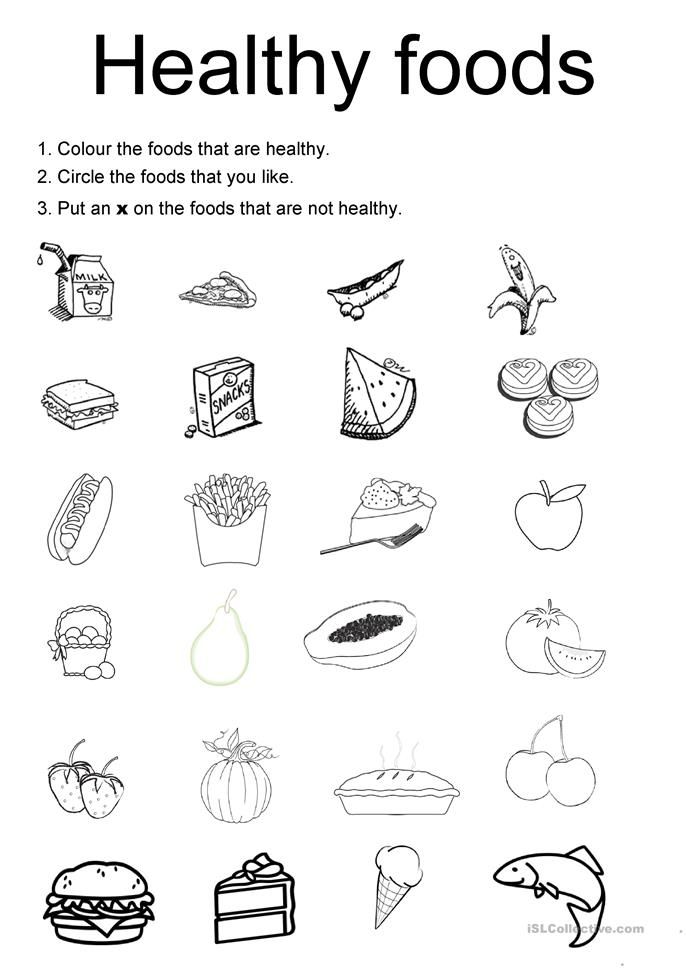
Consider what junk food is - examples.
Foods that need to be reduced in quantity for a child
Unhealthy food for children at first glance is not so unhealthy, we all eat it, but still ...
- Fatty food.
Even if it is a super healthy dietary meat, cooked in a copious amount of oil, it becomes a killer for the body. The harm from excessive consumption of fatty foods can be enormous - fried oil, for example, not only hurts the liver, but can also cause other serious diseases. At school age, this does not manifest itself as quickly as in an adult, but a student may have other reactions to a large amount of cholesterol in the body - this is a bad memory, and rapid fatigue, and low concentration.
- Caffeine.
Yes, caffeine promotes active brain activity, but only activity, not development. Moreover, doctors categorically do not recommend using it from an early age. It is worth knowing that caffeine is found not only in coffee, but also in black tea and many other products.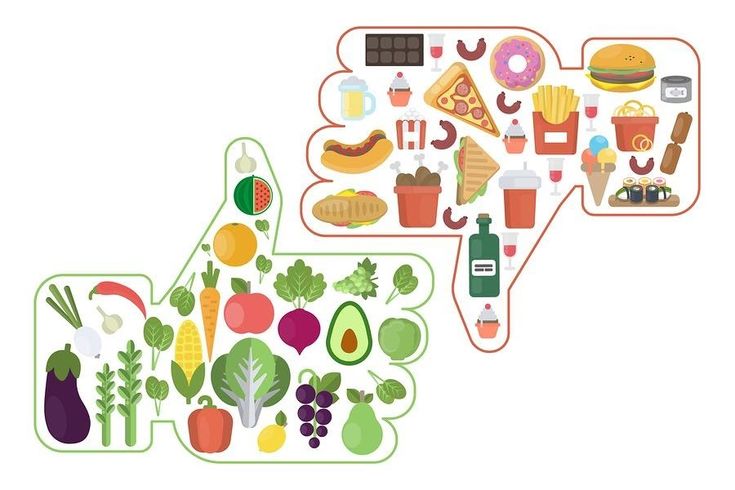
- Pasta.
Pasta is a controversial product for researchers in gastroenterology. On the one hand, doctors say that pasta contains a lot of vitamin B and iron, but on the other hand, everyone knows that refined products from the highest grade of flour bring excess weight and complexes.
As a result, we get the following information: tender and peeled pasta is considered useless food, which does not bring much benefit, but whole grain and large cereal varieties have fewer calories, but at the same time, all the same selenium, phosphorus and fiber with them can be obtained in the required volume.
Also note to parents: the more tender the type of pasta, the more useful the addition to them should be - vegetable salad, boiled meat or grated cheese. And it’s better to have no carbohydrates after pasta, because the child has already received them along with pasta.
- Fast food.
They act like pasta, the same useless food is just pure flour or cereals that have undergone half heat treatment.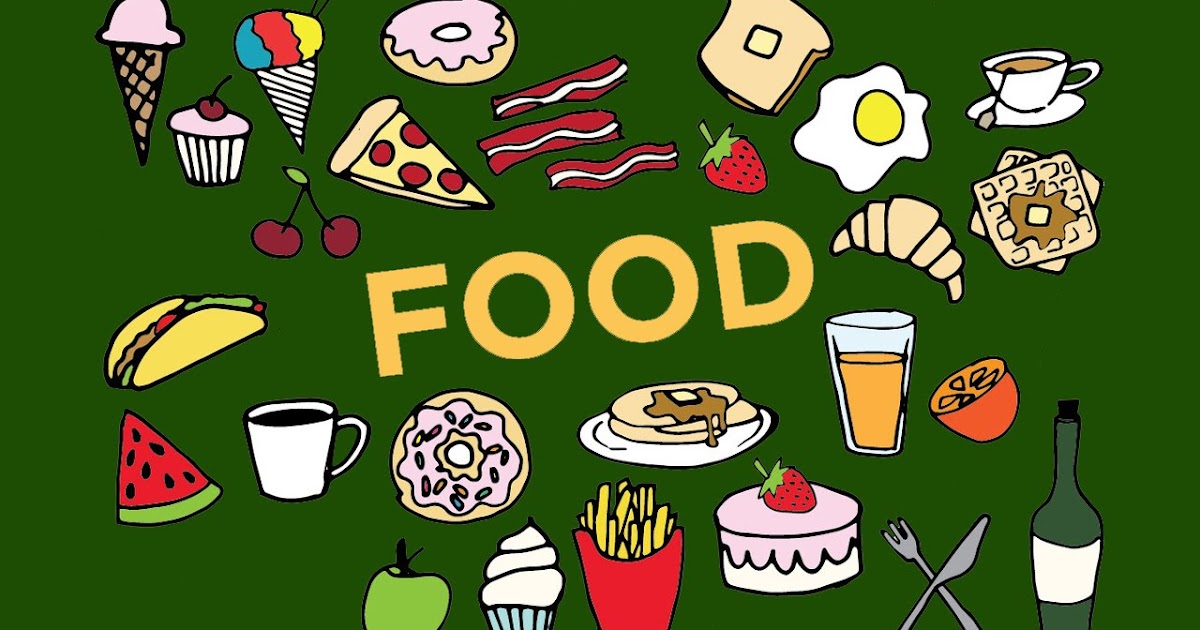 And not fresh food, but not cooked. It is better to cook fresh cereals for the child, which is clearly better than instant cereals.
And not fresh food, but not cooked. It is better to cook fresh cereals for the child, which is clearly better than instant cereals.
- Purchased juices.
Although this product is advertised as healthy, it actually contains so many acids and preservatives that it can be harmful to the body. Of course, there will be nothing from one pack, but if you give juice to a child regularly, this can have a bad effect on his development. Much better than fresh homemade fresh, and diluted to avoid an increase in acidity in the stomach.
- Sausages and sausages.
This refers to purchased, so-called meat products, which contain more soy than real meat. By itself, soy is not a harmful product, on the contrary - it has many useful plant substances, including protein, which is necessary for the child's body. But, even if we miss the moment that we overpay for vegetable protein instead of animal, then a bunch of preservatives and flavor enhancers are added to it.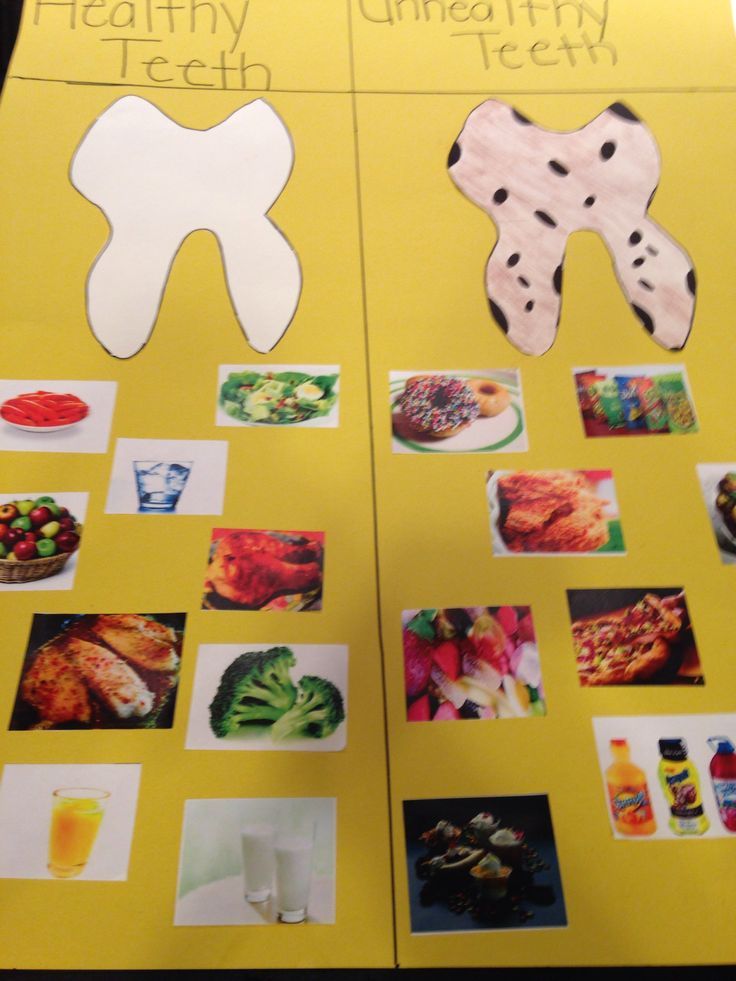
One of these is monosodium glutamate, a salt of glutamic acid that is added for flavor to many factory-made products. Glutamate is of natural origin - in vegetables and fruits, and piece - prepared at the factory. By itself, it does not harm health, but piece does not bind to proteins in the body, like one that is of natural origin. But the accumulation of this substance leads to sad results - problems in the work of the cardiovascular system and kidneys.
It is better to cook homemade sausage for children or buy eco products from farms so that there are fewer additives and preservatives, or none at all, and the product consists of real meat.
- Multicolored sweets.
Jellies and sweets, whose bright color always attracts children, are a bunch of dyes and acids that not only damage teeth, but also negatively affect the child's activity at school. Never any kind of artificial dye can help the brain work, it only corrodes the stomach over time and negatively affects the functioning of the kidneys. Carbonated drinks, if you have already decided to buy them for your child, should also not be bright in color, mineral water or sweet water without dye is better.
Carbonated drinks, if you have already decided to buy them for your child, should also not be bright in color, mineral water or sweet water without dye is better.
- Chips and crackers.
And all other foods that contain an excessive amount of salt are not needed by a child who needs to constantly think, reflect and develop. At first, the effect of salt on the body is not felt at all, but after years your child will not say “thank you” to you for purchased “sweets” with seasonings and salt.
Large amounts of salt are deposited in the joints and on the spine, as a result of which it becomes difficult for a student to sit in class, run in physical education and carry a backpack on his back.
- Cheap ice cream.
It is in cheap ice cream that there are a lot of trans fats and palm oil. They are added there to reduce the cost of the product, but no one says that trans fats have an effect on the functioning of the cardiovascular system.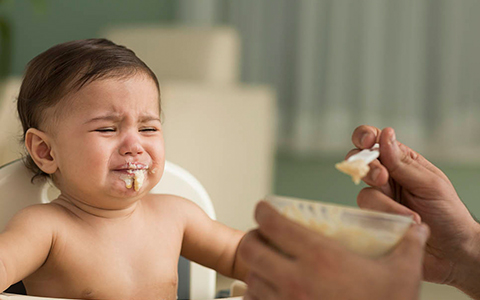 Due to the abundance of food with trans fats, in older children, the possibility of heart failures increases - microstrokes, ischemia, tachycardia and others.
Due to the abundance of food with trans fats, in older children, the possibility of heart failures increases - microstrokes, ischemia, tachycardia and others.
So the best substitute for cheap ice cream can only be ice cream, which you are sure of, or homemade, prepared by you personally. In general, natural ice cream has a beneficial effect on the functioning of the child's brain, as well as on the same cardiovascular system, since real ice cream contains macronutrients such as magnesium, potassium and phosphorus.
- Sweets.
Along with salt, the brain will not approve of a lot of sugar in the diet. All nutritionists unanimously argue that excessive consumption of sugar by a child leads to slow degradation, as well as to a slow development of the intellect.
Also, because of sugar, children can be hyperactive, which in itself is not a problem, if this does not happen on a math test. Teachers and nutritionists advise giving sweets in moderation, and definitely not before subjects that require calmness, but before physical education you can.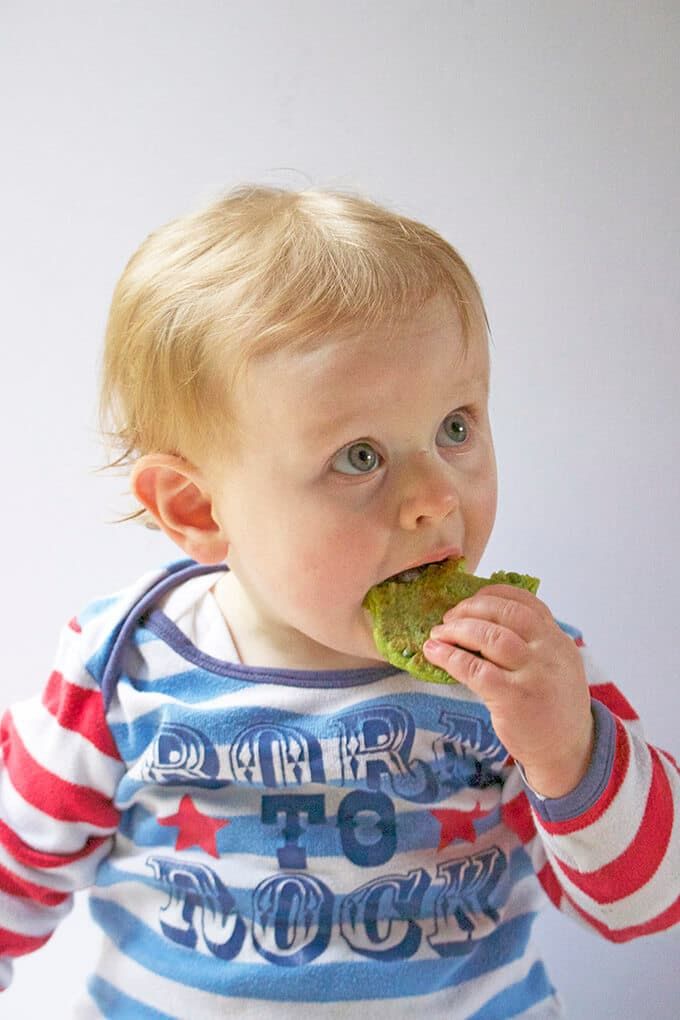
Can I eat a little or not at all?
Of course, it is impossible to remove all harmful foods from a child's diet. In the end, he himself can buy these chips somewhere on the street. But the essence of maintaining a healthy diet for a student is that you can eat all this, but not often, and not in choking.
The food should be balanced, that is, if you give the same pasta, then it can be once a week and with a good supplement, for example, with fish rich in phosphorus and calcium. If cereals, then with fruits, if potatoes, then with boiled meat, if sweets, then in moderation.
How often and regularly your child eats also matters. Following a meal schedule helps the stomach secrete gastric juice at the right time, and the feeling of hunger does not come unexpectedly. Thus, during the lesson, the student is not focused on the fact that he is hungry, but is learning a new topic.
Author's teaching technologies:
Anastasia Eremina - teacher of Geography and History
Behind 5 years at the National Pedagogical University.